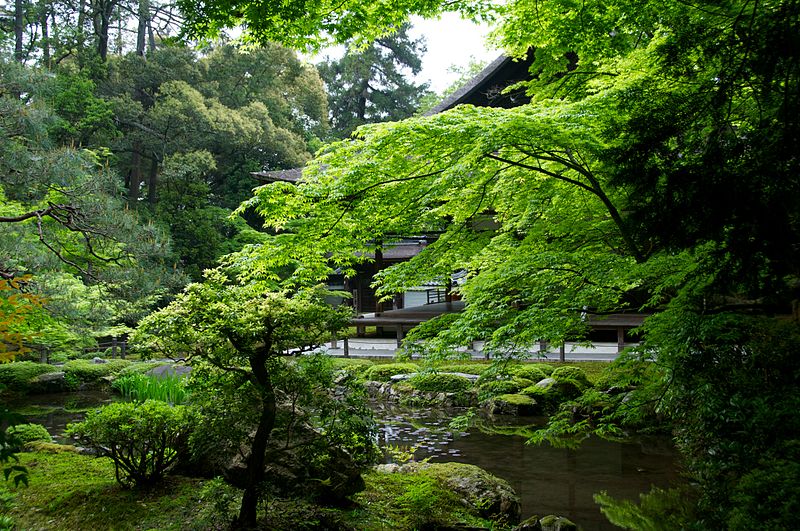Amazon book link: http://amzn.to/1yxEKjj
Here’s a question: why is it that everyone else in the world gets to wax eloquent about the virtues of their home country, but the minute a Japanese does the same thing, we get lambasted for (A) being an ultra nationalist rightist Imperialist and/or (B) having a Prime Minister who would dare visit the Yasukuni Shrine, whoever that Prime Minister happens to be at the moment.* (Editor’s note: It would help if the Prime Minister visited a different shrine, as former LDP bigwig Koga proposes and Japan stopped denying war atrocities and retracting apologies. Obviously, there is a lot Japan has to be proud of but definitely not the war. Just sayin’)
That’s okay. We’re Japanese: the most self-effacing, self-deprecating, self-loathing people on the planet. Needless to say the stress-factor involved with all this can be so damaging as to send the entire nation spinning into a black hole of depression. That depression is the driving force of the bad economy (no wonder it’s taking forever to recover) and now that the failure of Abenomics is official…oh, forget it.
Gentle cough.
Let’s turn our minds to this book: “Why the Japanese Are Beautiful,” by Shunmyou Masuno (枡野 俊明) published earlier this year by Gentousha Shinsho (幻冬舎新書). Professional Zen gardener and one of the most influential Zen masters of our time, Masuno heads the Kenkouji Temple in Yokohama. For the past 6 years, he has written extensively on Zen and how to deploy it in our daily lives, but this is the first time he has linked Zen to the Japanese national identity. “We are beautiful,” Masuno writes, “because Zen resides at the very core of the Japanese existence.”
“Why the Japanese Are Beautiful” opens with a revealing (if self-congratulatory) episode about being commissioned by Mark Shuttleworth – the Cape Town wunderkind who founded investment company HBD and later flew to the International Space Station via Soyuz. Shuttleworth was building a botanical garden on the Isle of Man and was keen to put in a Zen garden. Masuno writes about how Shuttleworth picked him up in his private jet and flew with him to the Isle to start work on the garden. “When you stop to think about it,” writes Masuno, “many iconic IT billionaires are deeply influenced by Zen.”
Among them, Masuno cites Steve Jobs, Bill Gates, and Oracle’s Larry Ellison, who bought a villa on the grounds of Nanzenji in Kyoto. “There must be something about Zen that speaks to super successful people,” writes Masuno, and it’s probably true. Even on this archipelago, Nikkei Business magazine has consistently promoted Zen as a way of optimising work quality and achieving serenity. Zazen sessions have become a secret boom among young OLs and salarimen. Even Shinzo Abe goes to a temple in Yanaka, Tokyo once a month for Zazen and meditation.
Zen has its roots in India. It then crossed over to Chinese Buddhism before winding up in Japan. “Ours is the only Asian country that adopted the teaching with such earnestness, merging the country’s lifestyle to Zen philosophy,” writes Masuno. That merging, according to Masuno, is what makes the Japanese so distinctive and “beautiful.”

“Zen actually resides in every facet of the Japanese mind,” writes Masuno, and the foremost example of that is seen in the way we work. “The dedication to craftsmanship and the reverence for precision and discipline is unparalleled.” He also points out the endearing peculiarities of the Japanese aesthetic, and how it revels in the flawed and incomplete. Evidence to that is seen in the imperfect, spontaneous energy of a Zen garden. Or how the Japanese refuse to throw out cracked bowls and plates, but will find a way to mend them with gold dust. Masuno writes, “Ruptures, cracks, creases and wrinkles — the Japanese will find beauty in these flaws because Zen is a philosophy that accepts and ultimately forgives everything.”
The book goes on to explain:
“Western aestheticism is about adding things. Its objective is to express and celebrate the self. Japanese aestheticism is about subtraction. The objective is to erase the self, in order to be at one with nature.”
No doubt about it – even a cursory reading will make you feel better about being Japanese, which is more than we can say about Asahi Shimbun. (Their goal seems to lie in crushing the Japanese spirit under the ghostly heel of a WWII military boot.) And Heaven knows we need this sort of boost; after all, no one else was going to stroke our egos if we didn’t do it ourselves.
Having said that, the book falls short of addressing the real and immediate problems among the Japanese today. Zen may be effective in achieving inner peace, but it’s not doing much to bridge the ever-widening generation and income gaps, the super-aging of a society where children are treated like rare and precious specimens or ruthlessly exploited, the deep and abiding discrimination against women, and so on.
The ills are still here, whether we’re beautiful or not. And on a bad day and standing in the Yamanote Line, I’m tempted to think the Japanese (including myself) are the saddest, least attractive people on the entire planet. Even if we were tapped into the beauty of a Zen garden, few of us have the time or inclination to sit on a rock to contemplate it.
Still, Masuno’s book is hugely inspiring, if only because it makes us realize the seeds of beauty are within. All we have to do is become aware of it, and from that moment something will have changed. It may be an inflection in the voice, or a change in the way one holds an umbrella, or yes – even the way one stands in the Yamanote line. Zen is the one method that beautifies the physique, as well as the way one perceives the world, free of charge.
So Mark Shuttleworth can keep his expensive Zen garden because the Japanese already have theirs – right in our own backyard. We only have to dig a little.
****
“There is a simple way to become buddha: When you refrain from unwholesome actions, are not attached to birth and death, and are compassionate toward all sentient beings, respectful to seniors and kind to juniors, not excluding or desiring anything, with no designing thoughts or worries, you will be called a buddha. Do not seek anything else.”
“A fool sees himself as another, but a wise man sees others as himself.”
“Treading along in this dreamlike, illusory realm,
Without looking for the traces I may have left;
A cuckoo’s song beckons me to return home;
Hearing this, I tilt my head to see
Who has told me to turn back;
But do not ask me where I am going,
As I travel in this limitless world,
Where every step I take is my home.”
― Dōgen, Zen master, founder of Soto Zen Buddhism

I found this review hugely entertaining.As a ‘foreigner’ working in Japan I don’t find the people I interact with on a daily basis to be self-effacing in any way.Ask the average middle class Japanese person about Japan and you get an endless monologue about how wonderful the country is,how awful the pollution is in China and quite often you get snide remarks about Korea as well.You only have to watch the television for a week to get sick of hearing the word Nihon/Nippon.Many people in Japan seem almost as self-absorbed as those wonderful people who spend all day watching Fox News in the USA.Also,if the Japanese State spends fifteen years marauding through Asia chopping peoples’ heads off willy nilly it might be an idea to change the flag,the anthem and the bloody head of state who made it all possible!
Lol. You make some good points. Well, it is a book review and one Japanese woman’s opinion. Yes, Japan does seem to do a lot of navel gazing (hey, that’s a lot like Zen meditation!) . Japan does have a rich spiritual tradition and the teachings of Zen, especially the Soto variety can be inspiring. However, I think people focus on the ‘cool’ aspects and forget the ethics and compassion that are supposed to be taught. “There is a simple way to become buddha: When you refrain from unwholesome actions, are not attached to birth and death, and are compassionate toward all sentient beings, respectful to seniors and kind to juniors, not excluding or desiring anything, with no designing thoughts or worries, you will be called a buddha. Do not seek anything else.”
― Dōgen
Thanks for this very well written review. has helped me put some things in context after returning from Japan.
Shunmyou Masuno appears to be living either in a different era or a different Japan to the one that I live in.
Such sweeping statements as “Western aestheticism is about adding things. Its objective is to express and celebrate the self. Japanese aestheticism is about subtraction. The objective is to erase the self, in order to be at one with nature.” and “Or how the Japanese refuse to throw out cracked bowls and plates, but will find a way to mend them with gold dust.” don’t stand up to even the most cursory examination. Nonsense like this probably adds to Japanese “self-loathing” as it is so obviously untrue.
Clutter and a seeming need to replace old with new are norms in modern Japan. Moreover, far from having a special affinity with nature, the Japanese appear to have a special affinity with concrete.
I’m still trying to remember which writer it was who wryly noted that there are more practitioners of Zen in California than all of Japan.